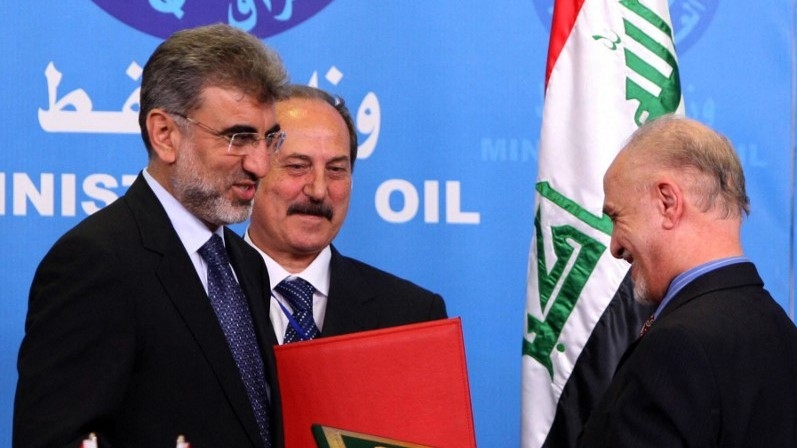Turkey ordered to pay $1.4bn to Iraq in Kurdistan oil arbitration case

An international arbitration court has ruled against Turkey in a long-running dispute with the Iraqi government regarding crude oil exports from the autonomous Kurdistan region, two Turkish sources familiar with the issue, but not authorised to speak to the press, told Middle East Eye.
The Iraqi oil ministry in a separate statement on Saturday welcomed the favourable ruling from the International Court of Arbitration that had been issued on Thursday, saying that the judgement confirmed that Iraqi national oil company SOMO is the only entity authorised to manage oil export operations through the Turkish port of Ceyhan.
The ministry said that it would discuss mechanisms for exporting Iraqi oil through the Ceyhan port, both with the Turkish government and the Kurdistan Regional Government (KRG) in Iraq, in a way that would guarantee the continuation of shipments.
Iraq sued Turkey nearly nine years ago due to an oil deal between Ankara and Erbil concerning exports through the Kirkuk-Ceyhan pipeline. Iraq maintained for years that the Iraqi Kurdistan region doesn't have any authority to make energy exports without Baghdad's consent.
One source familiar with the lawsuit told MEE that Iraqi authorities demanded $33bn from Turkey for the damage, but couldn't get that amount. The source added that Turkey was ordered to pay Iraq $1.4bn to cover the 2014-2018 period.
New MEE newsletter: Jerusalem Dispatch
Sign up to get the latest insights and analysis on Israel-Palestine, alongside Turkey Unpacked and other MEE newsletters
A second source said that Turkey was comfortable with the ruling since the penalty was much lower than initially expected. The source added that bilateral negotiations to resolve the issue between Turkey and Iraq were underway and would continue next week.
"Turkey will make sound legal arguments and eventually will only pay half of $1.4bn," the source predicted.
Iraqi local media reported that Turkey halted the pumping of Iraqi crude oil through Ceyhan on Saturday morning. Iraq had been pumping 370,000 barrels of KRG crude and 75,000 barrels of federal crude through the pipeline per day before it was halted, according to sources talking to Reuters.
An industry insider said Ankara was making around $1bn as a transit country thanks to Iraqi shipments.
Iraq's federal court also ruled last year that the law regulating the oil industry in Iraqi Kurdistan was unconstitutional, and demanded that Kurdish authorities hand over their crude supplies.
Over one million barrels per day, roughly one percent of global supplies, passed through the Ceyhan terminal in January, according to data compiled by Bloomberg.
Middle East Eye delivers independent and unrivalled coverage and analysis of the Middle East, North Africa and beyond. To learn more about republishing this content and the associated fees, please fill out this form. More about MEE can be found here.

